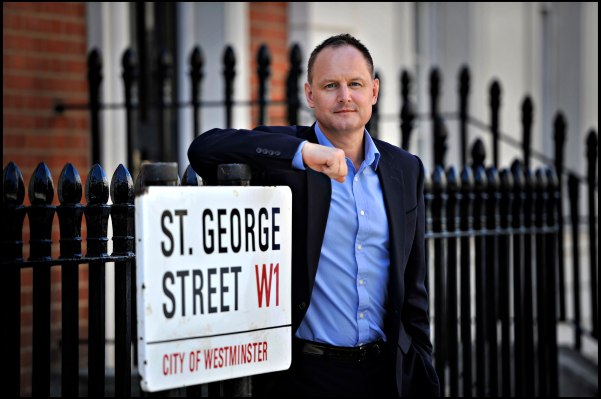Scottish Equity Partners (SEP), a 25-year-old, growth-stage venture capital firm, has closed on £260 million ($322 million) in commitments for its fifth fund, in one of the largest capital raises for a European venture firm this year.
The firm plans to invest the capital mainly in the U.K. and Ireland, but it says investments in companies in other European countries will also be considered. The 45-person firm is now managing more £1 billion in assets across its London, Glasgow and Edinburgh offices.
Managing director Calum Paterson suggests fundraising wasn’t much changed from past years, despite a challenging economic and political backdrop. Asked about the ripple effects Brexit might have on SEP’s business, he notes they “won’t be known until after negotiations have concluded and, in particular, there’s clarity with regard to access to the single market and the free movement of people.” He adds that SEP is “working closely with our portfolio companies to understand the possible implications and ensure that they have plans in place to mitigate against the risks.”
SEP hasn’t had a big exit anytime lately, though one of its most valuable bets is reportedly on the cusp of one. According to an October report in Bloomberg, the global travel search business Skyscanner, which was valued at $1.2 billion back in January, is beginning to explore a possible sale or IPO. The 13-year-old company, based in Edinburgh, is one of few “unicorns” in Scotland; SEP led its Series A round back in 2007.
Some of the SEP’s other bets include SportPursuit, a five-year-old, London-based flash sales site for outdoor and sports gear that last year raised £9.5 million ($10 million) in Series C funding, including from Grafton Capital and earlier backer Draper Esprit; Babbel, a nine-year-old, Berlin-based language learning service that raised $22 million last year, including from Reed Elsevier Ventures, Nokia Growth Partners, and VC Fonds Technology Berlin; and Abcodia, a six-year-old, U.K.-based biotech company behind an ovarian cancer screening test. Last year, it raised $8.2 million in funding co-led by Cambridge Innovation Capital and Scottish Equity Partners.
Previous investors accounted for 90 percent of the new firm’s commitments, with U.K.-based investors making up 40 percent of the fund and the rest coming from Europe and the U.S.
Paterson says the firm is sticking to its longstanding strategy of making investments of between £5 million and £20 million in growth-stage technology companies.
He says, too, that there’ve been a couple of promotions in recent years. Tony Robison, who joined SEP in 2011 and previously worked with a number of high growth technology companies, has been made a partner. So has Keith Davidson, a former cybersecurity operator turned investor who joined the firm last year.
SEP’s fourth fund closed with £200 million in late 2011.
